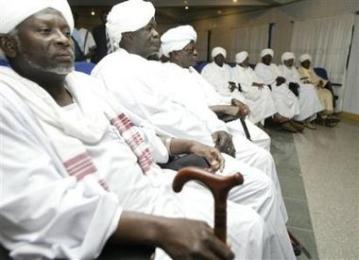Security committees in South Darfur develop measures to stop tribal clashes
August 31, 2015 (NYALA) – Security committee at three localities in South Darfur state met on Monday to assess the security situation against the backdrop of the ongoing tribal clashes between Salamat and Falata tribes.

The commissioner of Tulus locality, Ibrahim Abakar Shamna, told Sudan Tribune that security committees of the three localities besides the local administration discussed in an expanded meeting ways for achieving lasting solution to prevent renewal of clashes between Falata and Salamat.
He pointed that the security committees developed strict security measures to arrest any individuals or groups seeking to wreak havoc particularly robbers and looters who drag tribes to bloody clashes, noting that specific groups became known for stealing cattle.
Shamna stressed that security organs are now equipped more than ever with military gears which allow them to curb any security threat in the area.
The commissioner emphasized that security organs wouldn’t hesitate to arrest anyone who seeks to create tensions among tribes residing in the three localities, pointing to coordination among security committees, local administration and ordinary citizens to clamp down on the outlaws.
He noted that a mechanism to heal the rift between the two tribes has been developed, saying it would tackle issues of blood money and reparations in a way that preserves the rights of the victims.
Clashes between the two Salamat and Falata erupted last March following theft of cows in Rajaj area. At the time 67 people were killed. Also, seven people were killed in renewed clashes between the two tribes last month.
The central government admitted the failure of traditional reconciliation approach and decided stop these bloody tribal conflicts by bringing to justice the perpetrators of the attacks and through the massive deployment of troops.
(ST)
